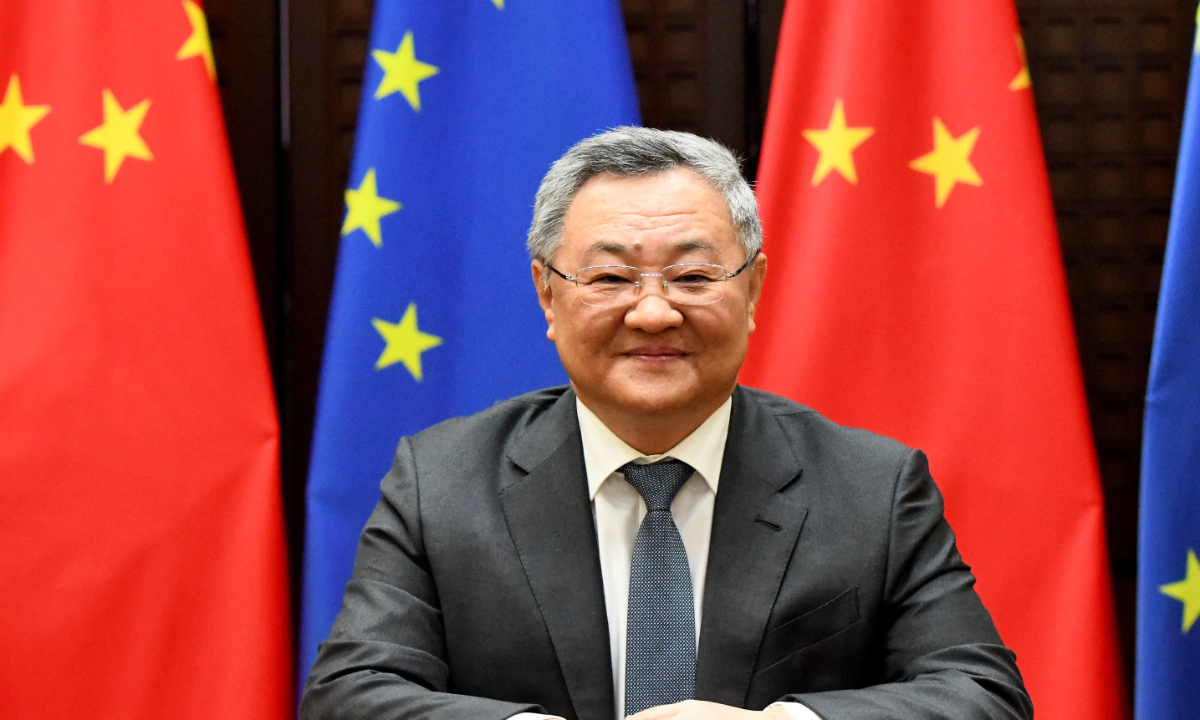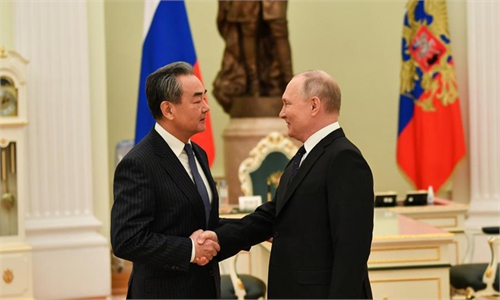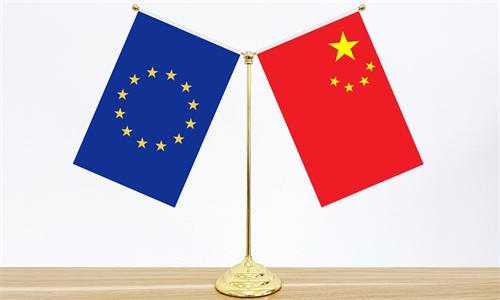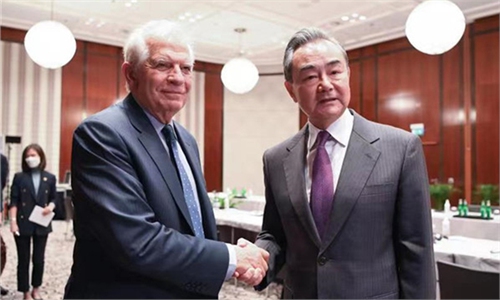Exclusive: China, EU to usher in frequent high-level mutual visits soon, says Chinese ambassador to EU

Ambassador Fu Cong, head of the Chinese Mission to the EU. Photo: Courtesy of Chinese Mission to the EU
European Commission President Ursula von der Leyen and European Council President Charles Michel may visit China in the first half of 2023 with the relevant preparations already underway. China and the EU are expected to usher in frequent high-level mutual visits, the Chinese envoy to the EU revealed recently.
Ambassador Fu Cong, head of the Chinese Mission to the EU, told the Global Times in an exclusive interview that he is optimistic about the recovery of China-EU relations. Although there are still some problems facing China-EU relations, China does not fully agree with some of the EU's position on the Ukraine issue, but it does not want the issue to affect the development of China-EU relations.
At the invitation of the governments of France, Italy, Hungary and Russia, Wang Yi, member of the Political Bureau of the Communist Party of China Central Committee and director of the Office of the Central Commission for Foreign Affairs, visited France, Italy, Hungary and Russia from February 14 to 22.
Wang also attended the 59th Munich Security Conference and delivered a speech at its China session to communicate the vision of common, comprehensive, cooperative and sustainable security. The visit was on the eve of the one-year anniversary of the Russia-Ukraine conflict, and attracted huge attention from the global community.
"The nine-day visit is aimed at sending a signal of peace. Visiting both Europe and Russia is also conveying the message about China promoting peace talks," Fu said, noting that China is very concerned about the escalating situation.
The visit also aims to release another important message that China-EU relations should not be affected by the Ukraine issue, Fu said. Europe's misplaced emotion toward China on the Ukraine issue is irrational, as China has independent foreign policy and cannot fully agree with some of the EU's positions on the Ukraine issue, the Chinese diplomat said. "But China does not want the Ukraine issue to affect the development of China-EU relations."
Fu suggested that the EU should avoid being too emotional in dealing with the Ukraine issue. "People can have wishes, but they must face reality. Otherwise, this war will be protracted."
Despite some problems, Fu said he is "very optimistic" about the recovery of China-EU relations. The general trend of China-EU ties developing in a positive direction is very obvious, Fu said.
In the first half of 2023, European Commission President Ursula von der Leyen and European Council President Charles Michel are expected to visit China, and the two sides have started relevant preparations. Some high-level consultation mechanisms at the vice-premier level between China and the EU will resume soon, and the two sides are expected to usher in "very frequent high-level mutual visits" soon.
At the end of 2022, Michel and German Chancellor Olaf Scholz visited China. French President Emmanuel Macron and Italian Prime Minister Giorgia Meloni are also expected to visit China in the first half of 2023, according to media reports.
Some observers said the willingness of many European leaders to visit China has sent a positive signal to the world, and it also allows people to see the possibility of China-EU relations getting out of the stagnation of the past two years. However, the EU-China Comprehensive Agreement on Investment (CAI) is still frozen today due to sanctions. Also, the stance of some politicians including those from Lithuania on the Taiwan question has cast a shadow over China-EU relations.
When it comes to relaunching the CAI, the two sides should "look forward and let the bygones be bygones," Fu said. China had previously proposed to the EU that both sides could lift sanctions simultaniously so that the agreement can be restarted, but responses from the EU on this proposal were mixed, with some in favor and some believed it's premature, he said.
If the EU thinks that China's proposal may not fly, I hope they can propose a solution that they think can solve the problem, Fu noted. "We are open to that, and as long as the solution is based on mutual benefit and equality, China is willing to actively consider it," he said,
In the context of the global economic downturn, restarting the CAI as soon as possible will have a good effect on both sides and the global economy, the Chinese envoy said.
The main difficulty in unfreezing the CAI lies in the differences between the two sides on human rights issues. In this regard, Fu believes that China and the EU have restarted the human rights dialogue, and the doubts and concerns of the EU on human rights can be discussed through specific channels, which do not have to be linked to economic and trade issues.
China is willing to clarify the EU's prejudice and misunderstanding of China's human rights issues, reduce their differences, and promote the restart of the CAI, Fu said.
On the Taiwan question, the Chinese diplomat emphasized that the EU's position must be acceptable to the Chinese side.
The EU should not have a so-called "EU's one-China policy," and it has no right to unilaterally interpret the one-China principle, Fu said.
"Some people in the EU always talk about 'EU's one-China policy.' It's like their policy has nothing to do with our one-China principle or as if they have the monopoly to interpret their policy," Fu said.
"I emphasized to them that when China and the EU established diplomatic relations, the EU's commitment actually included a very important principle: that is, the EU's position on the Taiwan question must be acceptable to China," he said.




